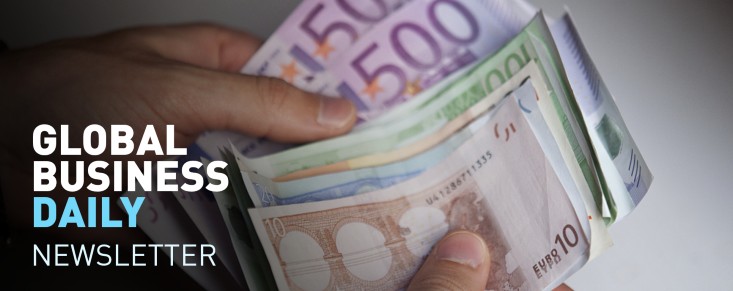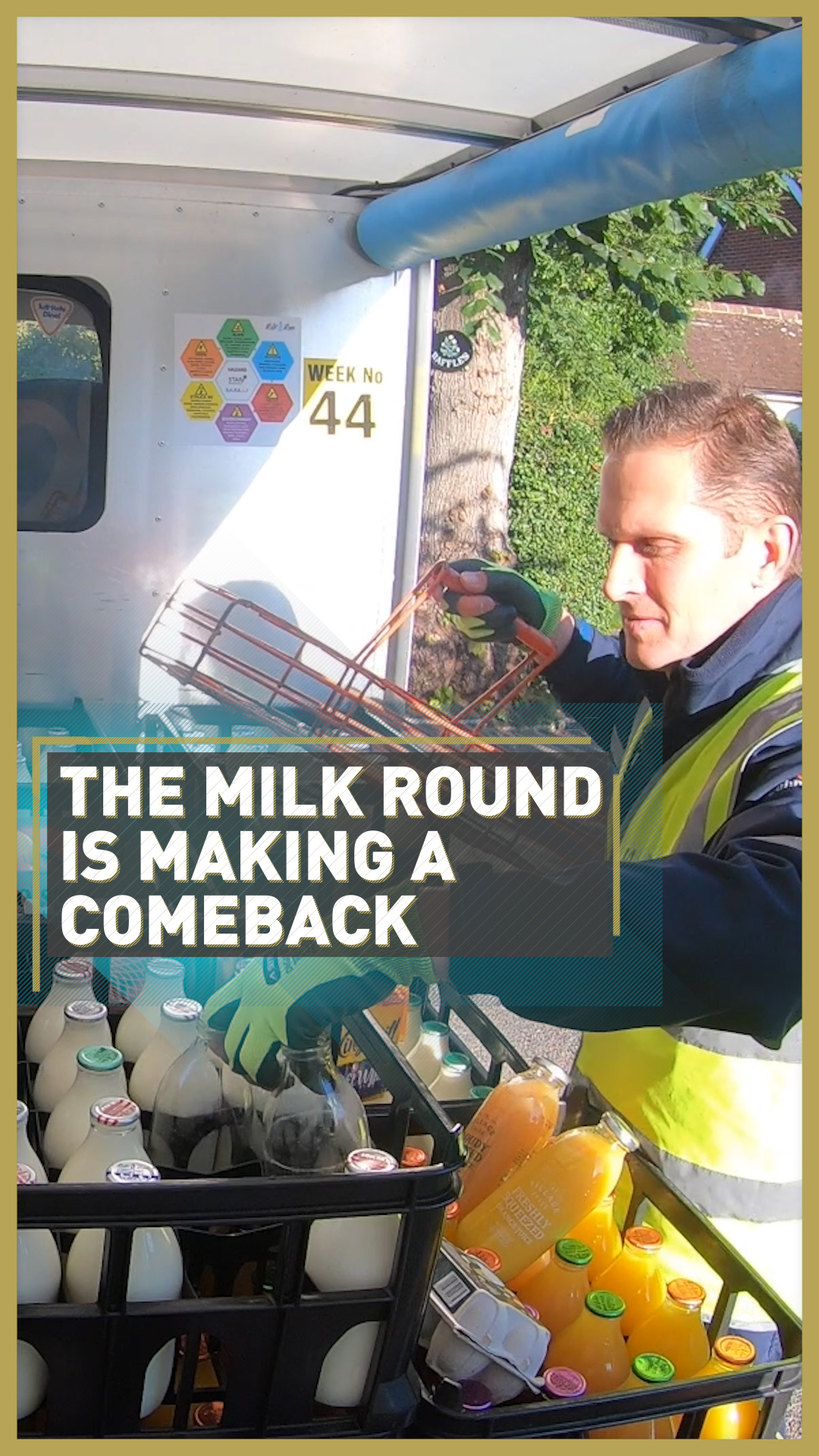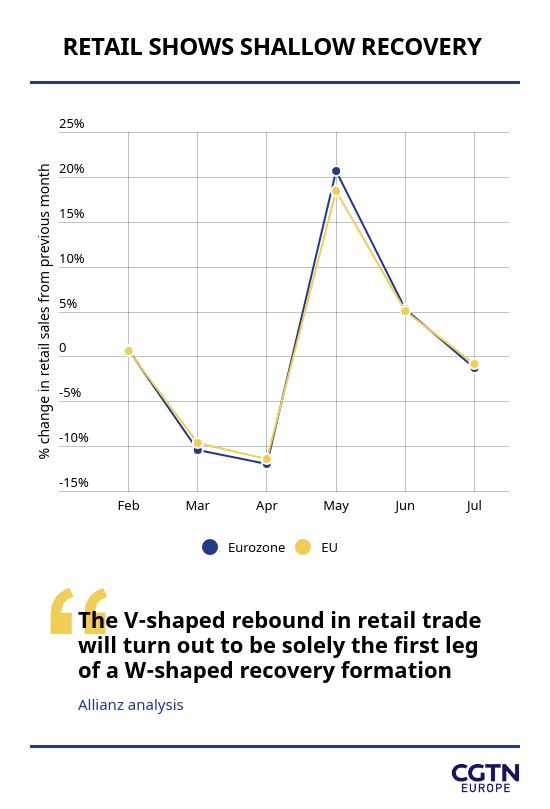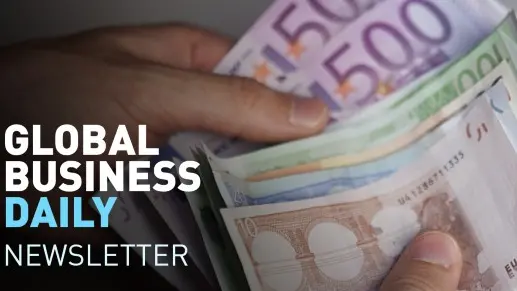"It's an ambitious objective but perfectly achievable."
French Prime Minister Jean Castex said the aim of a new $118 billion government recovery fund, to reach pre-pandemic GDP levels by 2022, was far from impossible. He added that finance minister Bruno Le Maire would not raise tax levels – which he described as the mistake made by previous governments.
The large sum has been discussed and hinted at before, but was formally announced in Paris this morning. The government said $42 billion will go towards making French businesses more competitive by slashing corporate taxes, currently among the highest in Europe. It's understood that SMEs will be the primary beneficiaries of this move.
As Toni Waterman , our correspondent usually in Brussels but who today jumped on the TGV down to the French capital, reports: another $42 billion is earmarked for social cohesion, with notoriously high youth unemployment the main target.
Sticking briefly with France, the Paris-based drug firm Sanofi has agreed with GlaxoSmithKline, a UK-based counterpart, to start a joint trial of a COVID-19 vaccine .
And turning to face the U.S., as we all speed towards the presidential election in November, the** Biden campaign** made history by raising more than $360 million in funds in August – a record for a single-month haul. The campaign also broke the online fundraising record, with at least $200 million of the total coming via the web. In case it were in any doubt, the race is truly on.
Finally, you've probably heard the phrase "V-shaped recovery" by now; but have you thought about what if that "V" pattern repeats, and we get a "W-shaped" recovery? That's what analysts are saying after new retail sales figures across Europe were released. Scroll to the bottom of today's email for a visualization of that data.
Happy reading,
Patrick Atack
Digital business correspondent
P.S. Did someone forward this to you?
Sign up here

France has announced a COVID-19 recovery package worth $118 billion to help drag its economy out of a deep slump. It's one of Europe's biggest cash injections relative to the size of the economy. French GDP fell almost 14 percent in the second quarter – compared with a 12 percent drop in the wider eurozone. The plan focuses more on boosting companies than consumer demand.
Online retailer ** Amazon has announced it will hire approximately 7,000 new staff in the UK** , taking its total hires in 2020 to approximately 10,000 in the country. Despite the losses for brick-and-mortar shops around the world, online retail has benefited significantly from global lockdowns.
French drug maker Sanofi and British firm GlaxoSmithKline (GSK) have started a clinical trial for a protein-based COVID-19 vaccine candidate. The companies said they had begun the first of two trials of the vaccine that uses the same recombinant protein-based technology as one of Sanofi's seasonal influenza vaccines, with GSK's established pandemic adjuvant technology which boosts the immune system's reactions.
China says it strongly opposes an Indian ban of some Chinese mobile apps. The list of 118 apps includes Baidu's Sharesave. A Chinese commerce ministry spokesman said the move should be corrected as it violates the legal interests of Chinese investors .
Social media site Twitter has admitted an official account linked to Indian Prime Minister Narendra****Modi was hacked, just two months after other high-profile accounts including Joe Biden and Elon Musk were accessed by hackers. The Modi account sent a series of tweets asking users to send money to a cryptocurrency site.
Laos is risking a sovereign debt default according to credit rating agencies, which have warned the pandemic and high debts in the power sector have diminished the nation's foreign exchange reserves to less than $1 billion. Laos is one of the poorest nations in Asia, and according to Moody's it is experiencing "severe liquidity stress."
China is increasing regulatory scrutiny of non-bank financial companies including Ant Group. The measures** include introducing licensing procedures for financial holding companies.**
Democratic Party U.S. presidential nominee **Joe Biden raised $364.5 million for his campaign in August, breaking the record for a one-month haul. At least $205 million of the funds came from small-sum online **donations. Biden attracted $140 million in July, compared with $165 million for incumbent President Donald Trump.
The head of Germany's central bank, Jens Weidmann, has **joined the chorus of German financiers warning the economy could suffer in the long term **if the country and wider EU continue to rely on fiscal and monetary recovery funds. Because the EU central recovery funds will not be counted in national debt figures, Weidmann warned it would lead to "debt illusion."
**Netflix has pushed back the release of its new docuseries **
Bad Boy Billionaires,
which focuses on disgraced billionaire Subrata Roy, founder of the Sahara India Pariwar corporation. Roy won a legal case against the series using his name, but the Indian Supreme Court sent Netflix's appeal back to a lower court, as the first case was heard in a local court in Bihar state.
Kite sellers across India have
** reported a significant hike in sales**
** over the past six months** , which have been dominated by the pandemic and lockdowns. Kite flying has been a popular and well-known pastime in India for generations and was apparently introduced by Chinese merchants and travelers.
WATCH: For decades, the sound of fresh milk being delivered on doorsteps was a wake-up call for most people, but with the growth of giant supermarket chains, the milkround became relegated to a niche business. However, the COVID-19 crisis has prompted a resurgence in dairy deliveries.
02:59

**Felix Ringel is an assistant professor of Social Anthropology at the University of Durham. He spoke to CGTN Europe as part of our ongoing series on **
Redesigning the Future
.
How has the pandemic affected how we live and work?
Our ability to be mobile, our ability to plan ahead, all of that has been severely restricted. But I think what is important to point out, all of us have found responses to exactly these challenges. So we have built up new routines and new rhythms.
How do you think our societies have coped with the pandemic and lockdown?
Different societies have responded very differently to the challenges of the virus and the lockdown.
Have our infrastructures been in place? And have they worked? Have they helped us to get through this crisis? And, again, in some cases, I think we can say yes to that. And in some cases it was a rather difficult journey.
Is there a sense in your academic discipline that we are seeing the slow death of cities as we know them?
I think cities in particular are challenged now because cities are all about social density and dynamics and mobility.
We have been used to parks, for instance. They've always been there. We always liked them. But now we see with a bit of sunshine out there how important they are for meeting people, seeing them, enjoying nature and all these other things. So we have to think ahead.
We should not plan for the pandemic to be there forever, but we have to plan ahead. What if there is another lockdown?
The pandemic has been followed by a financial crash, though ** – how can governments plan when they have less money than before?**
I think then we have to ask the big questions again. What's the role of the state? I think lockdown and the pandemic have forced us to actually ask these kinds of questions.
There have been lovely stories around the world of how neighbors have helped out each other, how we've tried to be better for one another. Maybe we can also keep that experience and build on it?

 简体中文
简体中文





